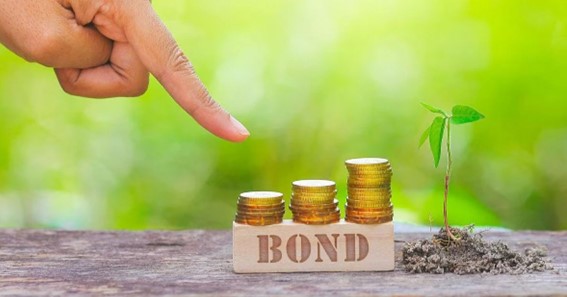Are you curious to know what is a secured bond? You have come to the right place as I am going to tell you everything about a secured bond in a very simple explanation. Without further discussion let’s begin to know what is a secured bond?
In the world of finance and investing, various financial instruments are utilized to generate income and manage risk. One such instrument is a secured bond, which offers investors a level of security and protection. In this blog post, we will explore the concept of a secured bond, its characteristics, benefits, and how it differs from other types of bonds.
What Is A Secured Bond?
A secured bond, also known as a mortgage bond or asset-backed bond, is a type of bond that is backed by specific assets or collateral. It is a debt instrument issued by a corporation or government entity to raise capital. The underlying assets serve as a guarantee that investors will receive interest payments and the principal amount upon maturity.
The collateral for a secured bond can include tangible assets such as real estate, equipment, inventory, or financial assets like stocks and bonds. In the event of default by the issuer, investors have a claim on the underlying assets, providing an added layer of security compared to other types of bonds.
Key Features Of Secured Bonds
- Collateral and Security: The primary characteristic of a secured bond is the presence of collateral that backs the bond. This collateral acts as a safeguard for investors, as it can be liquidated to recover the principal and interest in case of default.
- Priority in Repayment: In the event of default, secured bondholders have a higher priority of repayment compared to unsecured bondholders. They have the first claim on the underlying assets, giving them a greater chance of recovering their investment.
- Lower Risk: Due to the collateralization, secured bonds are generally considered lower risk compared to unsecured bonds. The presence of assets backing the bond provides a layer of protection for investors, reducing the likelihood of loss.
Benefits Of Investing In Secured Bonds
- Stability and Security: The presence of collateral offers a higher level of security to investors, as it mitigates the risk of default. This makes secured bonds an attractive option for conservative investors seeking stability and protection of their principal investment.
- Potential for Higher Yields: While secured bonds tend to offer lower yields compared to riskier bonds, they may still provide higher yields than other safe investments such as government bonds or bank deposits. This makes them appealing to investors who desire a balance between risk and reward.
- Diversification: Including secured bonds in an investment portfolio can enhance diversification. By allocating funds across various asset classes, investors can spread risk and potentially improve overall portfolio performance.
Risks And Considerations
- Credit Risk: Although secured bonds offer greater security, there is still a risk of default by the issuer. If the underlying assets fail to generate sufficient value or are insufficient to cover the bond obligations, investors may face losses.
- Market Conditions: Like any other financial instrument, the value of secured bonds can fluctuate based on market conditions and changes in interest rates. Investors should consider the potential impact of these factors on their investment.
Conclusion:
Secured bonds provide investors with an added layer of security and protection through collateralization. These bonds offer stability, priority in repayment, and potential for higher yields compared to other safe investment options. However, investors should remain mindful of the credit risk associated with the issuer and market conditions.
Understanding the basics of secured bonds can empower investors to make informed decisions when building a diversified portfolio and seeking a balance between risk and return. It is advisable to consult with a financial advisor or conduct thorough research before investing in any financial instrument, including secured bonds.
Visit Singerbio and read everything about the singer.
FAQ
What Is Meant By Secured Bond?
What Is a Secured Bond? A secured bond is a type of investment in debt that is secured by a specific asset owned by the issuer. The asset serves as collateral for the loan. If the issuer defaults on the bond, the title to the asset is transferred to the bondholders.
What’s The Difference Between A Secured And Unsecured Bond?
Difference between Secured Bail and Unsecured Bail Bonds
If you take out a secured bail bond, you’re stuck with the loss of collateral if you flee or don’t show up for court appearances. With secured bail you have real skin in the game. With unsecured bail, you don’t put up any money or collateral upfront.
What Are The Advantages Of A Secured Bond?
One of the major advantages of investing in a secured bond is that they are relatively safer than equity and provide security against failure to repay the invested amount. Secured bonds offer regular fixed income to the investor, although the interest rates can be lower, as compared to equity.
What Is The Difference Between A Secured Bond And A Regular Bond?
There are two types of bonds – secured and unsecured. A secured bond means that you actually pay money or bail property to secure your release. An unsecured bond or surety bond means you sign a document that says you will pay a certain amount of money if the defendant breaks his/her bond conditions.
I Have Covered All The Following Queries And Topics In The Above Article
What Is A Secured Bond In Jail
What Is A Secured Bond For Jail
What Is A Secured Bond To Get Out Of Jail
What Is A Secured Bond In Nc
What Is A Partially Secured Bond
What Is A Secured Bond Bail
What Is A Secured Bond
What is the difference between a secured bond and an unsecured bond
What are secured bonds in India
